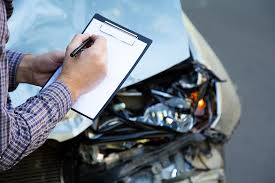Understanding Florida Car Accident Settlements: What You Need to Know
If you’ve been injured in a Florida car accident, understanding how the settlement process works is critical to protecting your rights and financial future. Florida follows a no-fault insurance system, which can make the claims process confusing—especially when serious injuries are involved.
At Applebaum Accident & Injury Lawyers, we help accident victims in Florida understand their rights and pursue the full compensation they deserve. Here’s a straightforward breakdown of how car accident settlements work in the Sunshine State.
Florida’s No-Fault System: What It Means for You
Under Florida law, every driver is required to carry at least $10,000 in Personal Injury Protection (PIP) coverage. This coverage kicks in first, regardless of who caused the crash. It pays up to 80% of your medical bills and 60% of lost wages—up to your policy limit.
However, once your PIP benefits are maxed out—and your injuries meet the state’s “serious injury threshold”—you can step outside of the no-fault system and pursue a claim against the at-fault driver’s insurance.
When Can You Pursue a Settlement?
If your injuries are severe and your PIP doesn’t cover your full losses, you may be eligible to file a claim against the at-fault party. This opens the door to additional compensation for:
-
Medical expenses (past and future)
-
Lost income and reduced earning capacity
-
Pain and suffering
-
Emotional distress
-
Loss of companionship (in the case of a spouse or partner)
Reaching a settlement means resolving your case without going to court—but that doesn’t mean it’s simple.
The Claims Process: Step-by-Step
1. Filing a Claim After PIP is Exhausted
Once your PIP coverage is used up, your next step is to file a bodily injury liability (BIL) claim with the at-fault driver’s insurer. Florida law requires most drivers to carry at least:
-
$10,000 in coverage per person
-
$20,000 per accident
However, drivers leasing or financing a vehicle are typically required to carry much higher limits ($100,000/$300,000). Whether you obtained the driver’s insurance details at the scene or from the crash report, this is when the formal process of recovering compensation begins.
2. Investigation by the Insurance Company
The insurance carrier will conduct its own investigation, which often includes:
-
Reviewing the police report
-
Interviewing witnesses
-
Analyzing photos or videos
-
Evaluating your medical records
Keep in mind: Insurance companies are not on your side. Their goal is to minimize payouts—not to help you get justice. Always speak with a lawyer before giving recorded statements or signing medical waivers.
What Happens Next?
Denied Claim? Don’t Give Up.
If the insurance company denies your claim outright, don’t assume the fight is over. A denial doesn’t mean your case lacks merit—it often means the insurer is trying to avoid liability. This is where an experienced car accident attorney can step in and push back.
Low Settlement Offer? You’re Not Alone.
Most initial settlement offers are far below what your case is truly worth. Insurance companies count on you not knowing better. Never accept an offer without understanding the long-term impact of your injuries or speaking with a lawyer who knows how to negotiate for full value.
How Settlements Are Negotiated
Your attorney can calculate the true value of your claim, taking into account future medical care, lost earning capacity, and pain and suffering. They can also bring in expert witnesses—such as doctors or life care planners—to back up your case.
With a lawyer by your side, insurance companies are more likely to take your claim seriously—and more likely to offer a settlement that reflects the real cost of your injuries.
Mediation and Arbitration: Alternatives to Trial
If negotiations stall, your lawyer may recommend:
-
Mediation: A non-binding session with a neutral third party to help reach a resolution.
-
Arbitration: A more formal process where a neutral party makes a final, binding decision.
These methods can avoid the time and expense of trial, but they must be entered into voluntarily. Your lawyer will advise you on whether these are good options for your case.
When a Lawsuit Becomes Necessary
If the insurance company won’t budge, filing a personal injury lawsuit may be the only way to recover the compensation you deserve. Ironically, just filing a lawsuit often motivates insurers to negotiate more seriously—more than 95% of car accident lawsuits settle before going to trial.
Unique Settlement Situations
Not every accident involves a straightforward insurance claim. Some scenarios may involve:
Underinsured or Uninsured Drivers
If the at-fault driver doesn’t have enough insurance—or none at all—your uninsured/underinsured motorist (UM/UIM) coverage may apply. If that still isn’t enough, a personal injury lawsuit may be necessary.
Multi-Vehicle Collisions
When more than two vehicles are involved, things get complicated fast. Multiple insurers may point fingers at one another, and it takes a skilled attorney to sort out liability and fight for your share of the settlement.
Same Insurance Carrier
If both you and the at-fault driver have the same insurer, beware. This presents a conflict of interest and requires the carrier to assign separate adjusters. Still, don’t expect fair treatment—insurers often try to reduce payouts in these situations. Let your attorney take the lead.
Self-Insured Drivers
Florida allows drivers to self-insure by showing financial responsibility. If you’re hit by a self-insured individual, you may need to negotiate directly with them—or file a lawsuit if they refuse to pay.
Don’t Navigate the Claims Process Alone
At Applebaum Accident & Injury Lawyers, we’ve helped countless Florida car accident victims recover the compensation they need to move forward. We know how insurance companies operate—and we know how to fight back.
If you’ve been hurt in a car accident, contact us today for a consultation. We’ll review your case, explain your options, and stand by your side every step of the way.
Applebaum Accident & Injury Lawyers
Serving injured clients across Florida 📞 Call now: (855) Call-Paul
📞 Call now: (855) Call-Paul



